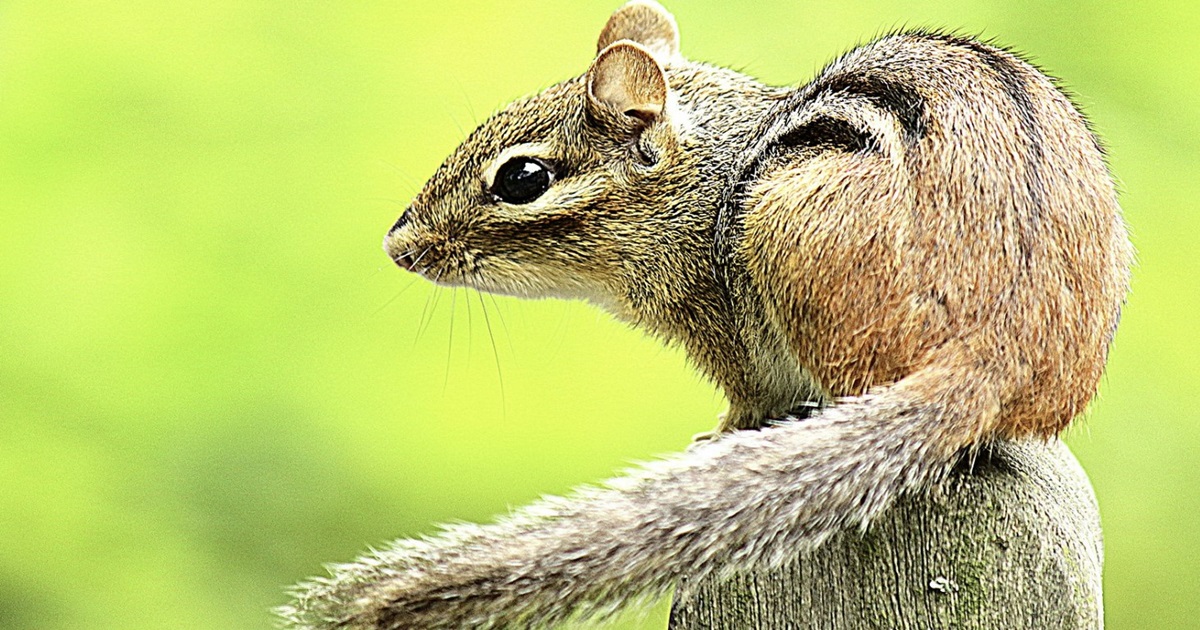How to Get Rid of Chipmunks: Simple, Safe, and Effective Methods

source: Flickr
To be honest, I find chipmunks absolutely adorable. With their big, bright eyes, striped backs, and puffy cheeks stuffed with food, they’re just so cute, it’s hard not to pause and watch their bustling antics. At least, that was my initial thought when I first spotted them darting around my garden and along the fence. It was almost like living next to a scene from a Disney movie—mischievous little critters going about their day. However, as charming as these furry visitors can be, they aren’t without their downsides. It turns out, while they’re fun to watch, chipmunks can cause quite a bit of damage too.

Chipmunks, small rodents with stripes, belong to the Sciuridae family, which includes squirrels. They’re generally solitary creatures except during mating season and have an interesting array of behaviors. They spend most of their days foraging, and you can often see them filling their cheek pouches with seeds, nuts, berries, and even insects or small frogs. They’re also master hoarders; they collect food in their burrows for the winter months, which means they’re always on the lookout for more to stash away.
Unfortunately, their need to forage and hoard can turn problematic for homeowners. Chipmunks are burrowers. They dig extensive tunnel systems that can undermine building foundations, patios, and walkways. They also have a penchant for nibbling on various plants, bulbs, and even young garden vegetables, which can ruin months of gardening efforts in no time.

In my own experience, I didn’t really understand the extent of their potential for havoc until I noticed my new flower bulbs being dug up and my vegetable garden looking suspiciously under-harvested. It didn’t take long to put two and two together: my little striped friends were the culprits. Their burrowing also created unsightly mounds and holes across the lawn, which became a hazard for walking and mowing.
So, are chipmunks really a problem? Yes, they can be, especially if their population goes unchecked. Besides structural damage and garden raids, their burrows can attract other unwanted visitors like snakes and even cause water drainage issues.

With all these issues, what can you do about it? Well, getting rid of chipmunks can be tricky, but there are humane and effective ways to manage their presence in your outdoor and indoor spaces. Here’s what I’ve learned about handling these cute but troublesome critters:
Outdoors:
Eliminate Food Sources: Chipmunks are drawn to easily available food. By removing bird feeders, securing garbage bins, and picking up fallen fruits and nuts, you can make your property less enticing.
Restrict Their Access to Shelter: Filling in burrows and holes can deter chipmunks. You can also use gravel or crushed stone around the bases of buildings and gardens as it’s difficult for them to dig through.

Plant Deterrents: Certain plants like garlic and daffodils are natural chipmunk repellents because they dislike the smell. Planting these around your garden can help keep them at bay.
Use Physical Barriers: Fencing can be effective, especially if it goes a few inches into the ground. Small mesh sizes help prevent them from squeezing through.
Live Traps: You can use humane live traps baited with peanut butter or seeds. Once captured, you can relocate them to a forested area away from homes.

Indoors:
If chipmunks are getting into your home, it’s important to seal all possible entry points. Look for holes near the foundation or gaps around windows and doors. Steel wool and caulking can seal these spots effectively.
Dealing with Tunnels:
If you discover tunnel entrances, flooding them might seem a quick fix, but it’s temporary and not very humane. Instead, using a commercial repellent specifically designed for burrowing rodents can help encourage them to move on without harming them.

General Deterrents:
Visual deterrents like motion-activated lights or scare devices (like an owl statue) can also be useful. Chipmunks are skittish and will avoid areas where they feel threatened.
If there’s one thing I’ve learned when it comes to chipmunks, it’s that balance is key. While it’s important to protect your property from damage, it’s also vital to respect the wildlife trying to coexist with us. Yes, chipmunks can cause damage to our gardens, homes, and yards, but with the right strategies, you can keep your home chipmunk-free and your conscience clear.